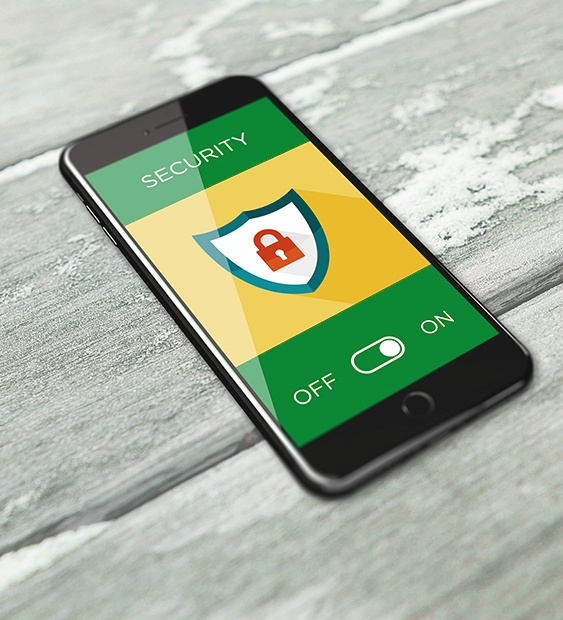As cybersecurity leaders, we have to create our message of influence because security is a culture and you need the business to take place and be part of that security culture. — Britney Hommertzheim
Scenario:
It’s a really busy day at a local accounting firm. They are in the middle of tax season, and as you can imagine, they are crunching numbers, analyzing sensitive financial data, and performing various tasks to ensure their clients are complying with state and federal financial authorities. An employee who has been busy at work for 10 plus hours is working at the office on an auditing project. Josh is tired and all he wants to do is complete this certain task for his project and finally go home. He opens an email from his colleague, and the subject of the email is regarding some invoices he has to analyze. He clinks the link to those invoices and almost immediately the system in his computer crashes. Josh has now become a victim of a BEC scam. To put in simple terms, he has fallen victim to a phishing email. Now, the entire accounting firm has been impacted by a cybersecurity threat because of the actions of one person. It’s an unfortunate event that couldn’t have arrived at a more inopportune time.
The thing about cybersecurity threats is that they don’t care if you’re in the middle of a busy season or not. When cybersecurity threats affect businesses, they tend to experience serious damage that can have a lasting impact.
What’s All The Fuss About?
First, let us define cybersecurity. Cybersecurity refers to a process and a set of technologies that allows the creation of the measures and operations necessary to protect networks, devices, programs, and systems from hostile and malicious cyber attacks. But why exactly should businesses be concerned about cybersecurity? We live in a world today where many businesses and organizations depend on technological devices and systems to ensure they fulfill their responsibilities to their stakeholders. Such technologies and systems such as computers, mobile phones, tablets, cloud software, system software have an essential role in productivity and efficiency. When an organization’s entire system is compromised by cyberattacks, it can have tremendous effects for various reasons. It’s one of the reasons why organizations should consider the importance of having adequate cybersecurity. When a cyber threat affects your organization, the consequences can be dire. Your intellectual property can be compromised. Sensitive client data is compromised. This can mean loss of revenue, clients, and can even put your business at risk for lawsuits. That’s how bad it can get. But it doesn’t have to be this way. When an SBA survey states that 88% of small business owners felt their business was vulnerable to a cyberattack, you have to consider just how necessary it is to take action to protect your organization’s systems.
Below are some quick and easy measures you can implement without spending a fortune to protect yourself from potential cyber threats.
1) Train Employees in Security Principles
Employees within your business have to familiarize themselves with the types of cybersecurity threats that can impact the whole team. Do they understand the differences between phishing, ransomware, and malware? If not, or you perhaps are not familiar with possible cyber threats, consult with your in-house IT professional or hire a third party to help you develop a thorough security plan, in a form of a document and state the principles and policies that your organization will implement to ensure systems are protected at all times. By doing so, your employees will be better equipped to identify possible threats. Establish consequences such as penalties for those employees who do not comply with established security policy. It is necessary for employees to become involved in the process of protecting systems because ultimately, it can only take one employee for the entire system to crash and burn. A staff that is prepared with the assistance of established cybersecurity protocols is better equipped to identify threats that can bring about serious consequences, ultimately affecting your business’ reputation.
2) Regular Software Updates
Did you know that hackers can easily enter your organization’s computer systems through outdated applications? The reason why it is so easy for malicious attacks to occur is that applications after the latest updates of particular applications occurred, hackers and other criminals have now come up with ways to negatively impact your organizations’ systems. Because these criminals always come up with ways and are constantly a step ahead in producing tactics to successfully target your organization, developers are always enhancing applications and other software through a variety of mechanisms, including fixing security patches to better protect your software. Some technologies and systems that benefit from constant software updates include email programs, servers, and operating systems. We understand that software updates come in the most inopportune times. You have things to do and clients/customers to attend to. When you discover that an update is required for a particular system, we tend to put it off for some other day. Don’t wait until the last minute. Outdated software can leave you vulnerable to potential attacks to your network and other systems, so dedicate some time to your systems to ensure they are all up to date.
3) Make Backup Copies of Important Business Data & Information
When a malicious attack occurs, it can jeopardize data and other information. How so? A cyber-attack such as malware has the potential to damage systems to the point where important data can be lost. Like the accounting firm scenario we presented, when an employee is managing sensitive information or when they depend on certain data to perform tasks when a cyber-attack occurs, all of this information can cease. It can be devastating to experience this type of loss. To better protect business data and information, organizations can team up and consult with IT professionals to designate certain employees and train them to adequately back up data. Backing up data consists of saving all important information; financial documents, human resources documents, word processing documents, spreadsheets, and all essential documents should be protected by performing this process. The backing up process ensures that when an organization experiences a cyber-attack and important information does become lost, saved copies would still be available. This minimizes the severity of the attack. It is suggested that organizations back up their data on a regular basis, and automatically, if possible.
4) Strong Password Protocols and Multifactor Authentication
We all know how important it is to create a password to have access to certain systems and networks. All of us know passwords that will allow us to have access to information. Many organizations use passwords to ensure employees are able to have the ability to see certain data. But it’s not enough to have many passwords at your disposal. These passwords have to be formidable and make it less likely for hackers and other criminals to have access to sensitive information. How can you ensure that your password is strong enough to prevent data and other information to be compromised. There are some ways in which organizations can create passwords that have all of the qualities necessary to ensure they withstand potential threats. Strong passwords should be long. About 12 characters long according to experts. Passwords should include a mix of symbols, numbers, and letters. Also, to ensure your password is strong enough to handle possible cyber-attacks, make sure your password does not include common characters that may suggest birthdays and pet’s names. Lastly, change the passwords utilized by employees within your organization every 3 months. A good way to better strengthen your password and protect data and information is to include multi-factor authentication, which is additional information that is required to be imputed when accessing certain data.
5) Use a VPN Connection While Working
Someone is always watching. There are hackers and cybercriminals that dedicate their efforts to violate a person’s privacy by watching every single move they make when they are online. Hackers can spy on individuals practically anywhere, as long as there is a connection to the world wide web. When employees are working with sensitive information, such as financial or personal data, if there are no security measures that protect this information, hackers will take great advantage of this. They will unlawfully obtain company information and use it to their advantage. To secure your organization’s networks from prying eyes, you can utilize a VPN (Virtual Private Network) connection. These networks encrypt data leaving and entering devices. This will ensure that hackers only obtain encrypted data, meaning data in code that can only be deciphered by the authorized owners or users of the VPN. Having a VPN helps business leaders obtain peace of mind knowing that sensitive data is being protected through a secured network.
6) Provide Firewall Security for Your Internet Connection
Having Firewall software protects your internet connection from outside forces, usually hackers, from obtaining information and other sensitive data. The firewall blocks unauthorized users from having access to sensitive information on a private network, which is ideal for organizations utilizing complex networks and systems to safeguard stakeholder information. Today there are multitudes of ways in which criminals can access private data through cyber threats, and one of the best ways to ensure company data is protected is by utilizing this effective software. The best part is that the types of firewall software are varied and cost-effective. In many cases, as of now, your organization can obtain free firewall software. This software is only a download away, which makes it an accessible and affordable option for organizations considering ways to enhance security measures without breaking the bank. Lastly, make sure your firewall is enabled. This will permit the firewall software to perform its tasks of safeguarding privacy when employees use networks and systems that contain vulnerable data.
7) Get Yourself Covered
From large, multinational corporations to mom-and-pop businesses, all organizations should consider getting covered. That is – getting protected- from possible cyber threats. Cyber threats are becoming more constant. More importantly, these types of threats are becoming more sophisticated. This makes it more difficult for everyday individuals who are not versed in computer systems and other forms of information technology to distinguish a potential cybersecurity threat. Businesses need to keep their networks, systems, and devices that contain sensitive data safe from these malicious acts. In today’s age, it’s not a matter of if your business is going to experience some form of a cybersecurity attack. The question is when will it occur. One of the best ways to protect your company’s systems is through reputable antivirus software. You can also use other forms of software available in the market that are created to protect your organization’s systems. This, in addition to insurance, is a great option for those organizations that are able to invest a little more in security measures. Remember, updates are important and are the best ways to protect company networks. It is also one of the best ways to get your organization covered from potential threats. Make sure your employees are able to install software updates in a timely manner. Trust us, it will save a ton of headaches… and possible liabilities.
Don’t think your business to too Small for Cybersecurity Protocols
The topic of cybersecurity can get a little complicated. It doesn’t have to be that way. There are tons of resources out there for small business owners to acquire, which will help them understand the advantages of having solid cybersecurity software. We can assist you in searching for the right programs for your business.
Copyright © 2014-2024 b.iD LLC. All Rights Reserved.
Boutique Creative Agency providing Branding Specialists, Logo, Copywriting, Print & Web Designs, Public Relations, and Marketing solutions in Houston, Texas










